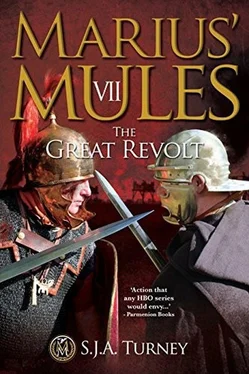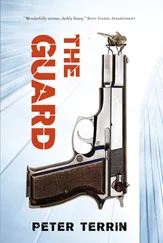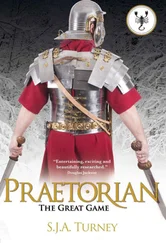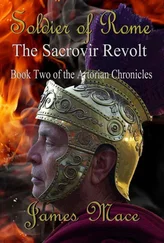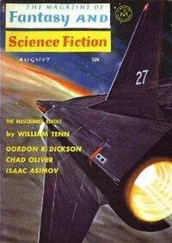S. Turney - The Great Revolt
Здесь есть возможность читать онлайн «S. Turney - The Great Revolt» весь текст электронной книги совершенно бесплатно (целиком полную версию без сокращений). В некоторых случаях можно слушать аудио, скачать через торрент в формате fb2 и присутствует краткое содержание. Год выпуска: 2014, Издательство: S.J.A. Turney, Жанр: Исторические приключения, на английском языке. Описание произведения, (предисловие) а так же отзывы посетителей доступны на портале библиотеки ЛибКат.
- Название:The Great Revolt
- Автор:
- Издательство:S.J.A. Turney
- Жанр:
- Год:2014
- ISBN:нет данных
- Рейтинг книги:4 / 5. Голосов: 1
-
Избранное:Добавить в избранное
- Отзывы:
-
Ваша оценка:
- 80
- 1
- 2
- 3
- 4
- 5
The Great Revolt: краткое содержание, описание и аннотация
Предлагаем к чтению аннотацию, описание, краткое содержание или предисловие (зависит от того, что написал сам автор книги «The Great Revolt»). Если вы не нашли необходимую информацию о книге — напишите в комментариях, мы постараемся отыскать её.
The Great Revolt — читать онлайн бесплатно полную книгу (весь текст) целиком
Ниже представлен текст книги, разбитый по страницам. Система сохранения места последней прочитанной страницы, позволяет с удобством читать онлайн бесплатно книгу «The Great Revolt», без необходимости каждый раз заново искать на чём Вы остановились. Поставьте закладку, и сможете в любой момент перейти на страницу, на которой закончили чтение.
Интервал:
Закладка:
As they had crested the hill, the man had pulled something from his belt with his left hand. Shieldless and with his sword in his right, the big German steered his beast purely with his knees. Varus had frowned at the odd thing the German chief brought forth. It looked like a long knife, but with twin parallel blades, each bent at the end into a razor-edged hook.
And then, before he could query the man, Sigeric had roared some Germanic, guttural noise and his horsemen had kicked their steeds into a charge before even Volcatius Tullus had the chance to have his signaller blow the call. Varus found himself almost lost amid the big men on their bigger horses, feeling curiously short and odd as he raced into battle.
The effect of their surprise attack was both instant and horrific.
The panic that swept through the Gallic reserve army was palpable and, Varus noted, seemed to be almost entirely aimed at the German cavalry, rather than the much more numerous auxilia and regulars under Volcatius Tullus.
And as the riders ploughed into the rear ranks of the Gaulish army, Varus began to understand. As the old saying went — well, paraphrased anyway — you could take the warrior out of Germania, but you couldn’t take Germania out of the warrior. This force may be kitted out in the best Roman equipment available, and trained by Roman cavalrymen, but they were no more Roman at heart than Varus was German.
And in much the same way as the more brutal of the Germanic tribes, this bunch apparently felt no fear whatsoever. They would cheerfully charge into the mouth of Hades itself, determined to rip the balls from Cerberus with their teeth. Their bloodthirsty enthusiasm was tangible, and if Varus could feel it riding with them — in fact, almost succumbing to it by sheer proximity — then he could only imagine what it felt like to the Gauls they were riding down.
The Germans ploughed into the infantry like a sword through butter, barely slowing as they chopped, slashed, speared, jabbed, sliced and kicked their way. The horses — Germanic steeds of their own selection — trampled the unwitting and more than once Varus saw the animals lunge down and bite the enemy, something he’d never seen a horse do in his life.
As he watched, Sigeric turned from a German officer into a howling, lustful battle demon. That strange, twin hooked knife rose and came down, slamming into a panicked Gaul’s throat and the big chieftain roared and hauled it up. The hooks caught on the unfortunate Gaul’s chin, shredding his neck like an old, weatherworn curtain and, accompanied by a roar and a yank of arms with muscles like anvils, Sigeric ripped the half-severed head from the body, shattered vertebrae falling away and bouncing from his horse’s flank. In shock, Varus turned away only in time to see one of the other Germans gripping a poor Gaul’s wrist in his teeth, gnawing the arteries as he sawed through the elbow with his sword.
Varus felt sick. And faint. Everywhere he looked, acts of the most appalling barbarism were being perpetrated. These were not cavalry. These were animals!
No wonder the Gauls ran when they saw the Germans. After facing this lot once or twice, no man in his right mind would want to stand and take them on a third time.
The Gaulish army had lost in that instant.
The force that had been pushing to cross the north rampart of Mons Rea disintegrated, fleeing wherever they could. It took a matter of heartbeats for word of the cavalry onslaught to reach those in the thick of it. The men outside the camp on the periphery of the battle turned and fled, heedless of the dangers all around them, desperate to be away from the scene and making for the reserve camp on the hill.
The Germans were enjoying themselves, and every scene of their enjoyment threatened to make Varus’ gorge rise. Gulping in a bloody breath, the commander fought the urge to vomit and tried to move out to the open, away from the carnage and the charnel mess. Sigeric was in the way. The Roman officer couldn’t even see the rest of his cavalry, though he was sure they were now committed, adding to the destruction. He tried to push his way past Sigeric, trying not to notice what the big man was doing to a shrieking Gaul.
A thrumming noise almost escaped his attention and he didn’t know whether to shout his thanks or simply throw up as Sigeric held out part of a Gaul and used it as a shield to stop the arrow that had been hurtling at Varus, the missile thudding into the meat with an unpleasant noise.
Varus rode away from the slaughter, his face white as a fresh toga.
* * * * *
Molacos the huntsman lowered his bow. Another Roman officer he’d almost had, but the huge brute accompanying the man had stopped the arrow. The Cadurci hunter had dithered for half a heartbeat, wondering whether to try again, but what had been a raging battle was now turning into a slaughter. He was a hunter — a man of skill and finesse — not a meat-sack warrior. Thick battle was not his forte. He would have left the fight even were his people winning, but that was clearly no longer the case. The day was all but lost as the sun’s lowest arc touched the western hill. Time to find Lucterius. Molacos had managed to break out of Alesia, cross the inner wall at that broken gate, and slip through the northern rampart once the line had collapsed and the fighting had spread everywhere. Now he was free.
Ignoring the fighting going on around him, he slipped the Roman bow he’d picked up from a supply spot in the camp over his shoulder and instead drew his knife. He turned to head into the sunset, only to find a dismounted Roman cavalryman, shieldless and out of breath, in front of him. The Roman looked as surprised at the sudden meeting as he, and Molacos raised his knife even as the Roman brought his sword round to bear. The hunter was faster and much more accurate, though, his knife hitting the roman in the chin, the point jabbing up and through the mouth, into the brain and killing him.
But the cavalryman’s blow had begun and death would not slow the momentum.
The Roman sword smashed across Molacos’ face, sending him blind with blood and a shockwave of agony through his head. Desperate suddenly to be away from this nightmare, Molacos staggered, his face burning, blinking and hoping not to die.
Gradually, as he moved into the growing shadows away from the melee, the blood slick cleared from his eyes and he could see a little. Only one eye seemed to be working properly, and his left hand side was a vague pink-grey blur of liquid. His hand probed his face as he moved and he realised quickly that it was ruined. He’d never been pretty, and he knew that, but he recognised with equal certainty that he had been made hideous this day.
Cursing the world, and war, and Rome — mostly Rome — Molacos staggered off into the evening, searching for his master.
* * * * *
Cavarinos blinked.
His world hurt. His head felt as though horses had ridden across it.
Where was he?
He tried to rise, but his body appeared not to be working. His limbs felt like lead. It took him a long moment of realisation to figure out that he was beneath something. Several somethings, in fact.
He was at the bottom of a pile of bodies.
His head truly hurt, and he could feel the sharp pains of innumerable cuts and minor wounds across his body as he tried to free himself from the pile. An image struck him. A big, dark-skinned fist with knuckles like ox-shoulders coming for him. Fronto’s man . Memory flooded into him along with the endless pains. He knew he should feel angry, or glad, or indignant, or vengeful, or at least something . All he felt was tired.
After what felt like an hour of heaving and pushing, accompanied by the snapping of already-dead bones, Cavarinos extricated himself from the pile to discover that the sun had set. The inky purple of evening was cast above him, and the sounds of battle had gone.
Читать дальшеИнтервал:
Закладка:
Похожие книги на «The Great Revolt»
Представляем Вашему вниманию похожие книги на «The Great Revolt» списком для выбора. Мы отобрали схожую по названию и смыслу литературу в надежде предоставить читателям больше вариантов отыскать новые, интересные, ещё непрочитанные произведения.
Обсуждение, отзывы о книге «The Great Revolt» и просто собственные мнения читателей. Оставьте ваши комментарии, напишите, что Вы думаете о произведении, его смысле или главных героях. Укажите что конкретно понравилось, а что нет, и почему Вы так считаете.
